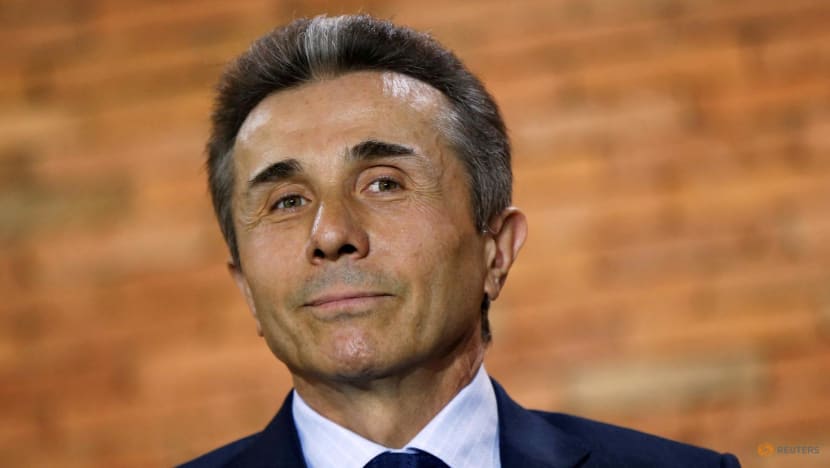Singapore court orders Credit Suisse Trust to pay former Georgia prime minister US$926 million
Former Georgia prime minister Bidzina Ivanishvili and his family lost millions in investments because of a fraudster in the bank who swindled away large sums of money.

SINGAPORE: The Singapore International Commercial Court on Friday (May 26) ordered Credit Suisse Trust to pay compensation of US$926 million (S$1.25 billion) to tycoon and former Georgia prime minister Bidzina Ivanishvili and his family.
The court found that a fraudster within the ranks of the bank had embezzled many millions of dollars from the trust over nine years, and the defendant had breached its duty to safeguard his assets.
The case was heard over multiple days in September 2022 and February 2023, involving top lawyers including Senior Counsel Cavinder Bull and Ms Woo Shu Yan from Drew and Napier for the plaintiffs.
Lawyers from Allen & Gledhill, Ms Han Rebecca and Mr Justin William Jeremiah, represented Credit Suisse Trust, a wholly owned subsidiary of Swiss company Credit Suisse Trust AG, which is a subsidiary of the Credit Suisse Group. The defendant, Credit Suisse Trust, is incorporated in Singapore.
Mr Ivanishvili, along with his wife and three of their children, sued Credit Suisse Trust claiming damages of about US$1.2 billion. They were the beneficiaries of the Mandalay Trust.
Mr Ivanishvili was born in Georgia and obtained his education there, including a PhD in economic science.
In the 1980s, he established and operated a business in partnership with business associate Vitaly Malkin, a Russian-Israeli business oligarch, importing cheap telephones and computers from Asia for sale in the USSR.
It was a very successful business, and both men used the profits to establish Rossiyskiy Kredit, one of the first privately owned banks in Russia.
Mr Ivanishvili's long relationship with Credit Suisse Trust in Singapore began in 2004, when an officer of the private investment banking arm of the Credit Suisse Group approached him and offered to assist him with wealth management services.
The bank and Credit Suisse Trust advised Mr Ivanishvili to use a structure, and he deposited over US$1.1 billion to be placed on trust in the Mandalay Trust with the objective of inheritance planning and asset holding.
However, the person appointed as the trust's relationship manager, Patrice Lescaudron, was a fraudster. Over nine years, he misappropriated many millions of dollars from the trust.
His conduct was halted only in 2015, and he was later arrested and jailed.
The Swiss Correctional Court found that Lescaudron had embezzled large amounts of money and bought securities above market price, causing damage to the trust and to Mr Ivanishvili.
He also opened various accounts and transferred money without the knowledge of either plaintiff or defendant, in order to cover losses in other clients' accounts he had caused.
Until August 2022, the defendant held a position that the plaintiffs had to prove the fraud perpetrated by Lescaudron, even though the latter had pleaded guilty and was jailed for the fraud.
Lescaudron was sentenced to five years' jail by a Geneva court in 2018. According to the Financial Times, he died by suicide in 2020 after he was released early.
Until a few weeks before the trial began, the defendant denied having a duty to safeguard the trust assets by having measures in place to detect and prevent fraud and misappropriation on the trust accounts from taking place, and by acting on any relevant information obtained through those measures.
However, the day the trial opened, the defendant accepted it was under a duty to protect the trust assets if it had actual knowledge that those assets were not being managed properly.
But it maintained that it played a very limited role in the facts which led to the fraud, and on the basis of its role and what it was told, it could not have prevented the fraud or brought it to an end.
In a 257-page judgment, International Judge Patricia Bergin noted that the defendant had admitted it was in breach of its duty to the plaintiffs to safeguard the trust assets by Dec 31, 2008.
She found that the plaintiffs had established that the defendant breached its duty to them to safeguard the trust assets as at Mar 30, 2008.
"The loss suffered by the plaintiffs is the difference between what would have been achieved if the whole portfolio had been removed and managed by a competent, professional trustee and the trust assets were not affected by fraud, and what was actually achieved," said Justice Bergin.
She ordered the defendant to compensate the plaintiffs a sum of US$926 million. Of this sum, the defendant has already paid the plaintiffs about US$79.4 million.
She ordered both sides to write in over the question of costs.
In a statement after the decision, Credit Suisse Trust said it “intends to vigorously pursue an appeal”.














